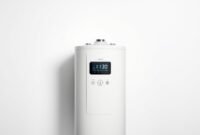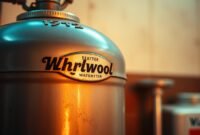Most homeowners are often confused or overwhelmed with the question, “Can you use propane heaters indoors?” Have the same question? You aren’t alone. This is the type of question that most homeowners commonly ask. If you are worried about your safety and want to avoid mistakes, learn the right facts about these heaters.
Are Propane Heaters Safe to Breathe Indoors?
All propane heaters can be safely used indoors. Many companies that make propane heaters make the device for indoor use. However, it’s crucial that you know, understand, and learn about propane safety. It will help you operate the device properly. You can also make preventive measurements or avoid mistakes if you are well educated.

Based on my personal experience, having used propane heaters during winter in a cabin setting, proper ventilation was always a priority.
“Even in well-ventilated spaces, it’s essential to monitor the oxygen levels as propane heaters consume oxygen to produce heat, which can lower air quality over time.”
| Heater Type | Key Features | Recommended Usage |
|---|---|---|
| Wall-Mounted Propane Heater | Auto shut-off when oxygen levels are low | Safe for long-term use |
| Portable Propane Heater | Carbon monoxide monitor, portable, easy to move | Short-term, monitored use |
| Vent-Free Propane Heater | External vent ensures safe removal of gases | Ideal for open spaces |
| Vented Propane Heater | External vent, ensures safe removal of gases | Suitable for continuous use in small spaces |
You shouldn’t smell anything. If you smell gas or something funny, turn off any appliances, remove yourself from the spot, and call the technician or someone with expertise to handle the issue. NEVER try to deal with such a dangerous situation by yourself unless you have the expertise, skill, or knowledge.
Read also: House Smells Like Gas
If you don’t smell any gas and regularly check your heater, you have nothing to worry about. Ensure you have enough ventilation so the air circulation is running well. This last one is super crucial because you don’t want to end up with carbon monoxide poisoning.
Ventilation: The Guide for a Propane Heater
There is no exact number for the amount of ventilation needed for propane heater usage. However, remember that you want fresh and sufficient air in the (heated) room. You can do it by opening the window or door or ensuring they have enough access to allow enough air within the room.
When there is not enough fresh oxygen inside the room, the heater won’t be able to burn the entire fuel correctly, so it will replace the oxygen with carbon monoxide. Ultimately, the heater will flood the room with carbon monoxide, which can be risky for a healthy environment.
So much ventilation do you need, exactly? As a rule of thumb, a room with 2,800 square centimeters or 3 square feet will need an air opening for every heater output of 100,00 BTU/hr. That’s the standard guidance if you don’t want a room full of carbon monoxide.
Contacting a professional is always advisable for those new to propane heaters or unsure about specific details.
“When I first used a propane heater indoors, consulting with the service provider who installed the unit gave me peace of mind, knowing that I was adhering to the best practices for safety and efficiency.”
What Propane Heaters Are Safe to Use Indoors?
Unlike what people think, several propane heaters can be used indoors. The first one is the wall-mounted type, which comes with auto switches that will turn the device off when it ‘detects’ insufficient oxygen in the room.

These switches are usually connected to an oxygen detector or sensor. The device will turn off when the oxygen level is too low.
Another safe model to use is the one with carbon monoxide monitors. The heater and the monitor can be used together, but they are advised to be placed not close to each other.
Read also: Electric Heater Turns on and off Repeatedly
Bottom Line
In the end, a propane heater is completely safe for use as long as you know the safety precautions and stages. If you are still unsure about the concern, can you use propane heaters indoors? Now you understand the real deal.


